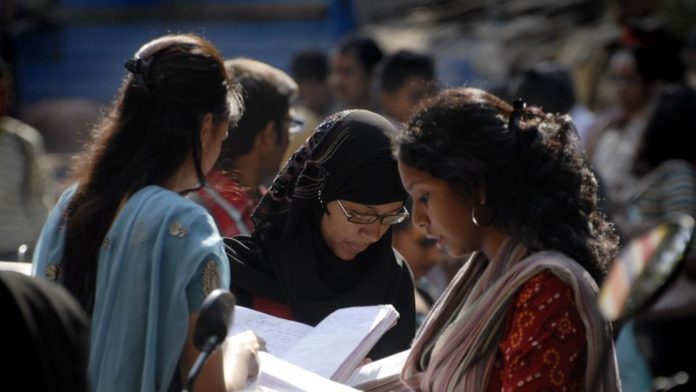(Updating earlier story)
New Delhi (NVI): In a significant development, the Union Cabinet today approved the new National Education Policy (NEP), paving way for transformational reforms in school and higher education systems in the country.
The new education policy will allow foreign universities to set up campuses in India. The new policy also aims for the Universalization of Education from pre-school to secondary level with 100 % GER in school education by 2030.
“This is the first education policy of the 21st century and replaces the thirty-four-year-old National Policy on Education (NPE), 1986,” the government said in an official statement.
“Built on the foundational pillars of Access, Equity, Quality, Affordability and Accountability, this policy is aligned to the 2030 Agenda for Sustainable Development and aims to transform India into a vibrant knowledge society and global knowledge superpower by making both school and college education more holistic, flexible, multidisciplinary, suited to 21st century needs and aimed at bringing out the unique capabilities of each student,” it added.
With an emphasis on Early Childhood Care and Education, the 10+2 structure of school curricula is to be replaced by a 5+3+3+4 curricular structure corresponding to ages 3-8, 8-11, 11-14, and 14-18 years respectively, according to the NEP 2020 approved by Cabinet today.
“This will bring the hitherto uncovered age group of 3-6 years under school curriculum, which has been recognized globally as the crucial stage for development of mental faculties of a child. The new system will have 12 years of schooling with three years of Anganwadi/ pre-schooling,” as per the government statement.
NEP 2020 also emphasises on attaining foundational literacy and numeracy.
“Recognizing Foundational Literacy and Numeracy as an urgent and necessary prerequisite to learning, NEP 2020 calls for setting up of a National Mission on Foundational Literacy and Numeracy by MHRD. States will prepare an implementation plan for attaining universal foundational literacy and numeracy in all primary schools for all learners by grade 3 by 2025. A National Book Promotion Policy is to be formulated,” read an official statement.
As per the new education policy, the school curricula and pedagogy will aim for holistic development of learners by equipping them with the key 21st century skills, reduction in curricular content to enhance essential learning and critical thinking and greater focus on experiential learning. Students will have increased flexibility and choice of subjects.
There will be no rigid separations between arts and sciences, between curricular and extra-curricular activities, between vocational and academic streams.
The Cabinet has also renamed the HRD Ministry as the Ministry of Education. The name change was a key recommendation of the draft of New Education Policy.
The HRD Ministry name was adopted in 1985, during the tenure of former Prime Minister Rajiv Gandhi, as it was changed from the ministry of education.
The New Education Policy (NEP) has been approved keeping in mind the need to emphasise the use of technology in education and helping students in adapting to learn through the use of technology such as online courses, educational platforms, and class-wise broadcasting on dedicated channels of education.
The new policy will replace the existing National Policy on Education which was first formulated in 1986 and last modified in 1992.
Among major suggestions under the NEP include a central regulatory body for all school boards to ensure uniform education levels across the country. And teaching in regional languages was also among the suggestions.
-CHK/ARK








